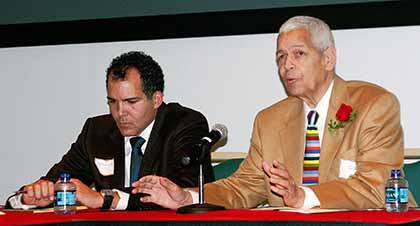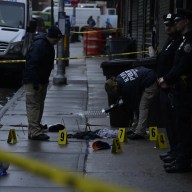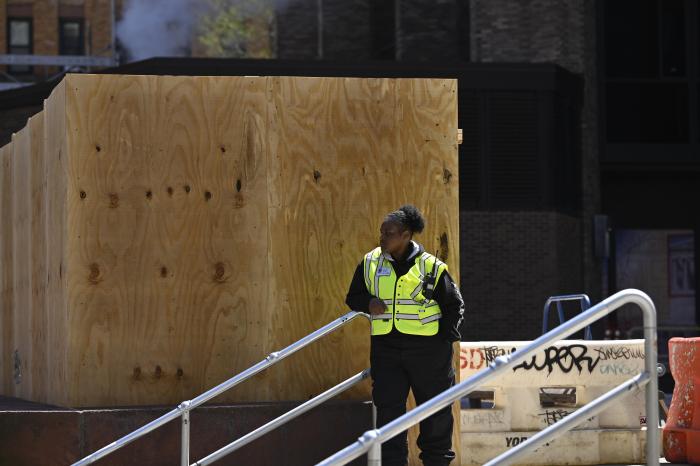BY JOE ANUTA
Legendary civil rights leader Julian Bond spoke at Queens College last week about the unprecedented racial equality movement he helped spearhead with his mentor James Forman, an impassioned activist and pioneer of civil disobedience.
The event celebrated the addition of books and personal correspondences that belonged to Forman, who died in 2005 at the age of 76, to the college’s Civil Rights Archives, which lend a personal note to the era when Bond and Forman helped found the Student Nonviolent Coordinating Committee in Atlanta, Ga.
“James Forman took this band of brothers and sisters that was SNCC and built us into a formidable force the likes of which the movement had never seen,” Bond said. “We represent the only mass activist mobilization of African-American young people and others to fight for freedom and justice in the 20th century, and we have never seen a similar mobilization since.”
And that unprecedented mobilization was due in large part to the organization skills and vision of Forman.
Although many of Bond’s stories brought back a sense of nostalgia for SNCC’s accomplishments and energetic pursuit of equality, he was quick to remind the audience that it did not happen overnight and America was an oppressive and often dangerous place for non-white citizens.
“Those were not the good old days,” he said, citing both physical and career risks.
“It was in the air … the assumption was that if you did these things, you would ruin your life — and for some reason, we just didn’t care,” he said to laughter and applause.
After running though pivotal points of the civil rights movement, he embarked on a lesser-known chapter, beginning with the Republican Party of the 1960s.
“As long ago as 1964 the Republicans began to remake their party as the white people’s party,” he said. “And they found a winning formula at the intersection of race and opposition to activist government.”
He also said that a shift in attitude following the civil rights movement blamed black Americans for their own plight instead of racism.
“Black behavior, instead of white racism, became the reason why blacks and whites lived in separate worlds,” he said. “The burden of racial problem-solving shifted from racism’s creators to its victims.”
Bond also blasted the deregulation of government agencies during the presidency of Ronald Reagan, and accused U.S. Chief Justice John Roberts — who worked under Reagan — of attempting to roll back the achievements of the civil rights movement in the 1980s and in the Supreme Court today.
And Bond, now a graying intellectual warrior, was not ready to sit back and bask in the glow of his own accomplishments.
“The task at hand is equal to if not greater than the job already done,” he said. “We’re still a country at war with itself.”
He offered pointed, and often humorous, critiques of the political right.
“President Obama is to the Tea Party as the moon is to werewolves,” he said.
He mentioned wage quality, the housing crisis and education as the next stage in the fight for equality, and how the demographics of that fight will change in the coming decades, since by 2050 black and Hispanic Americans will make up the majority of the population.
Forman’s son, James Forman Jr., was also present to help dedicate the countless books, communications and FBI files that make up the collection.
The archives began after a cadre of free-thinking Queens College students traveled to the deep south in the summer of 1964 to spread messages of equality. One student, Andrew Goodman, gave his life for the cause. Many of the others contributed photographs, leaflets, books and maps to the archives to document their trip. After SNCC, Bond went on to serve in the Georgia state Legislature for roughly 20 years and become the president of the National Association for the Advancement of Colored People, while Forman became involved with the Black Panthers and other equal rights groups and penned his autobiography, “The Making of Black Revolutionaries.”
Reach reporter Joe Anuta by e-mail at januta@cnglocal.com or by phone at 718-260-4566.

































